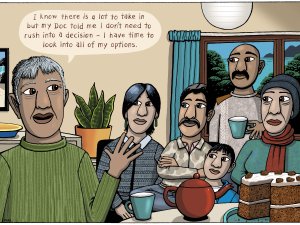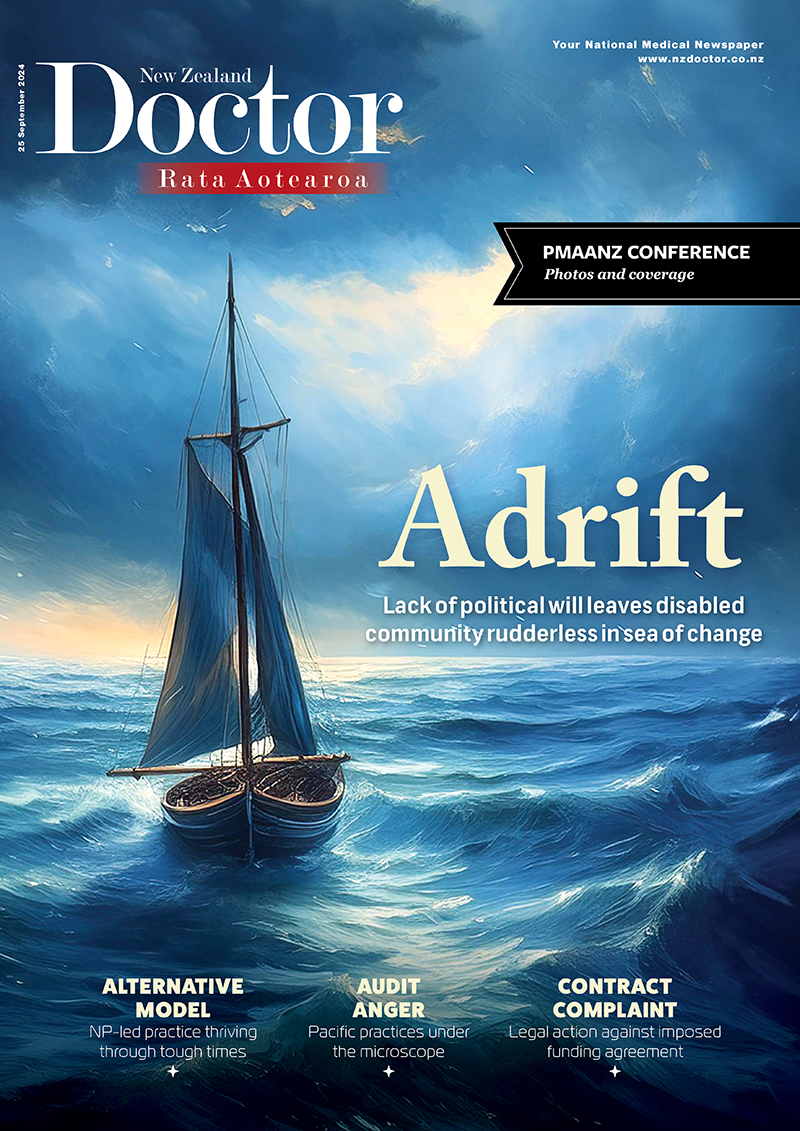Prostate cancer consultations are common in primary care and there is no one approach to testing and treatment that fits all patients. Urologist Simon van Rij discusses the key considerations and options for personalised care, appropriate investigation and treatment
Meningococcal case in Otago highlights need for awareness and vaccines
Meningococcal case in Otago highlights need for awareness and vaccines

Meningitis Foundation urges students to seek urgent medical attention if they suspect they have symptoms
The Meningitis Foundation Aotearoa New Zealand has urged university students and other members of the public in Dunedin to seek medical attention urgently if they are showing any signs of the deadly disease, after a case of meningococcal disease was discovered in North Dunedin in recent days.
Symptoms include:
- A stiff, sore neck
- A severe headache
- A fever, sometimes accompanied by cold hands and feet
- Vomiting
- A sensitivity to light, or a dislike of bright lights (an early warning sign)
- If a child or adult is difficult to wake, or in a drowsy and confused state
- Aching or sore joints
- Experiencing convulsive fits or seizures
Meningitis Foundation spokesperson Gerard Rushton says that meningococcal can strike suddenly and can kill within hours.
“Its symptoms can be easily confused with other illnesses, including the flu and Covid-19, and they often present late. Meningitis has a range of causes including bacteria, viruses and fungi,” he says.
“Please don’t be complacent, or just assume you have Covid-19. Early diagnosis could be the difference between life and death.”
Rushton, who with his wife Claire lost their 16-year-old daughter Courtenay to the disease in 2014, highlighted that students living in first year university residences were eligible for free vaccination for the A, C, W, & Y meningococcal strains, and urged them to get it.
“The vaccine is 80–85% effective. There are already cases occurring, and meningococcal can spread relatively easily from person to person. I’d strongly support all students living in first year university residences to get vaccinated, whether they are studying in Otago or at other tertiary institutes around Aotearoa New Zealand,” he says.
He said it wasn’t just death that was a risk, and many more patients – up to 40% of those affected – could suffer severe permanent impairment and disability including loss of limbs, hearing loss, learning difficulties, cerebral palsy and brain damage.
The Meningitis Foundation will next week be making an oral presentation to Parliament’s Health committee, in support of its petition asking the Government to fund both meningococcal vaccines for the most common strains of meningococcal disease – the B and A, C, W, & Y strains – for all 16-year-olds before they leave school.
The Foundation is calling on Parliament to make two currently available vaccines, which cover the most common strains of meningococcal disease, free for all young people.
Pharmac’s Pharmaceutical Therapeutics Advisory Committee will this month begin consultation for its funding options for the most common strains of meningococcal disease – the B and A, C, W, & Y strains.
Rushton says that change is needed urgently.




